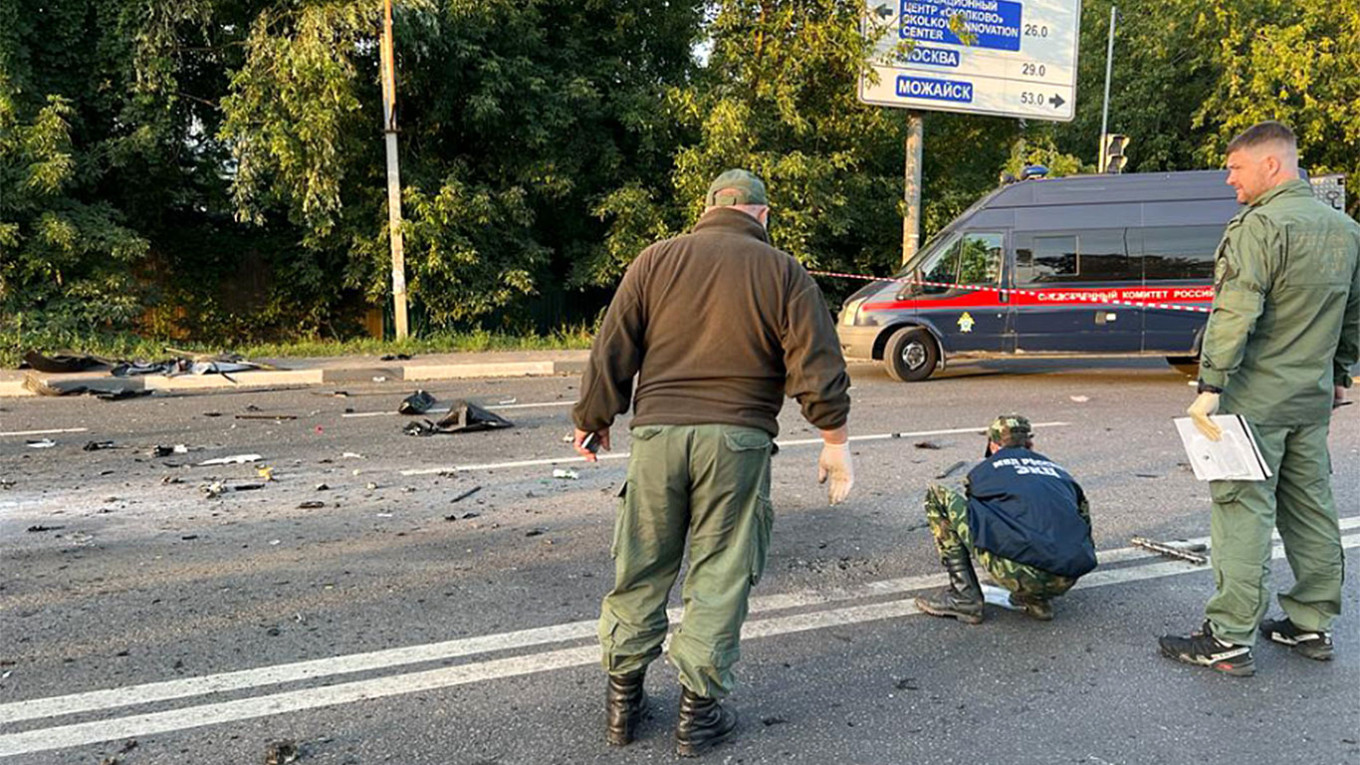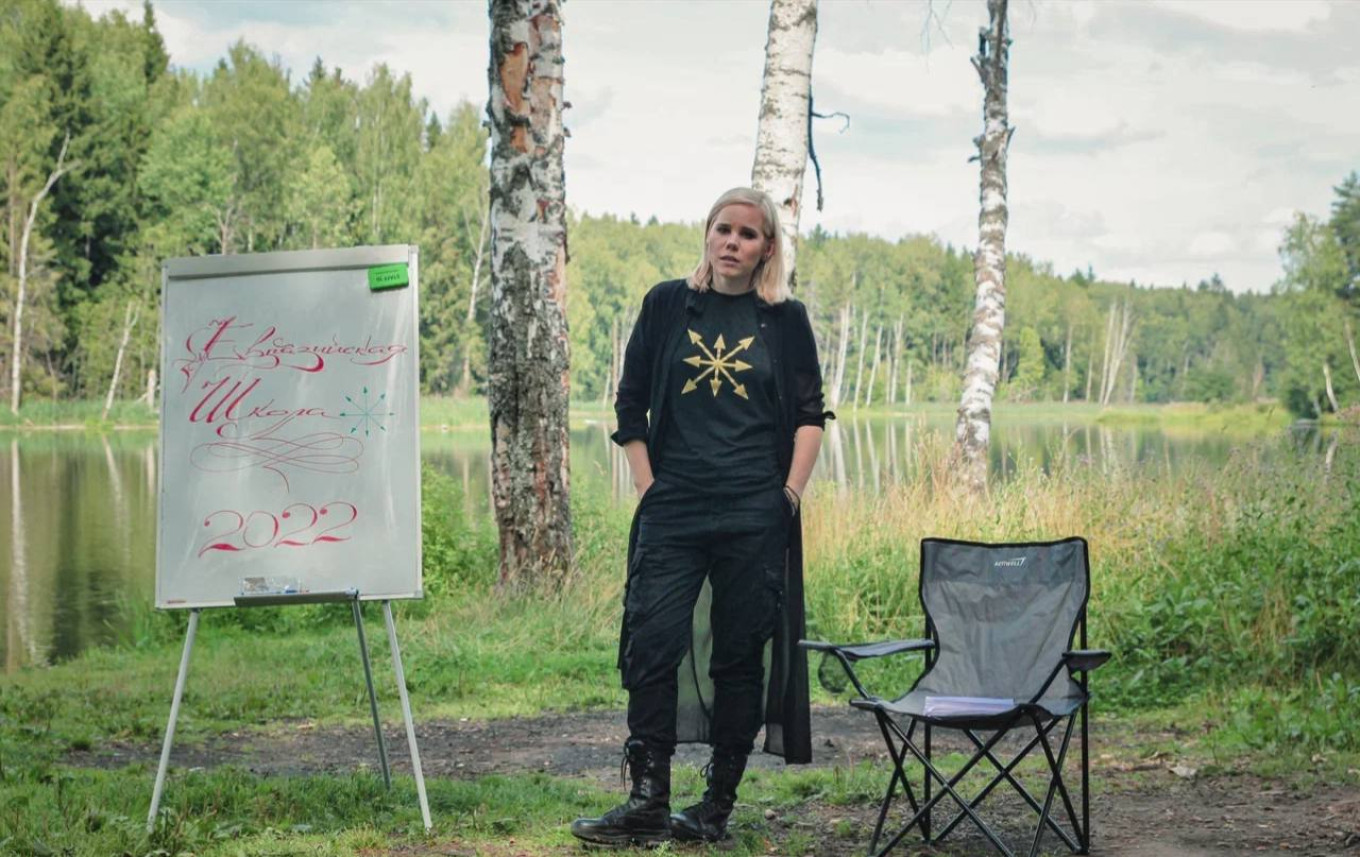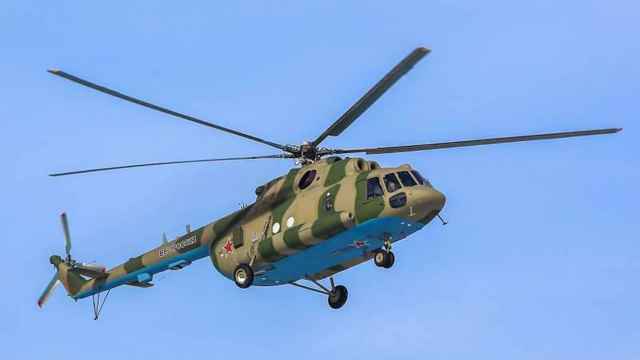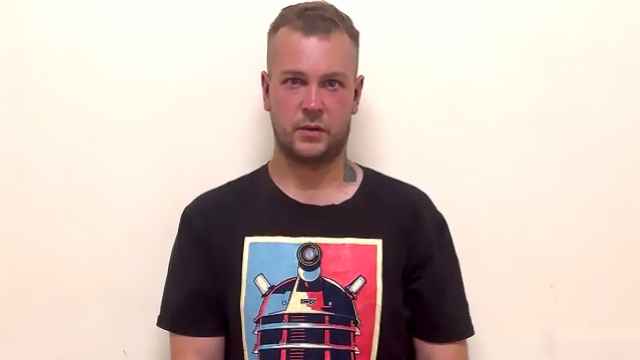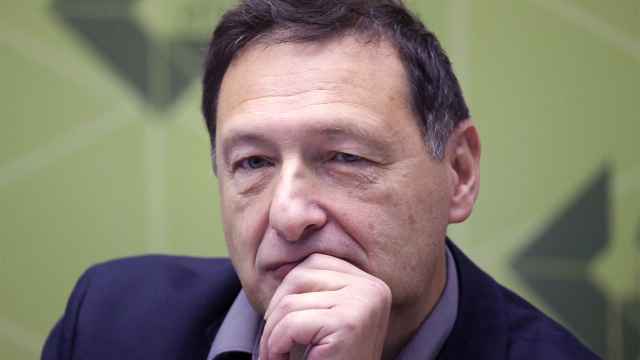Russia said Monday that Ukraine was responsible for carrying out a car bombing that killed Daria Dugina, the adult daughter of nationalist ideologue and Ukraine war supporter Alexander Dugin, as experts said the assassination would likely spook Kremlin loyalists.
Dugina, 29, died Saturday evening when a car bomb exploded in the Toyota Land Cruiser she was driving near Moscow.
Russian President Vladimir Putin described the incident Monday as a “vile crime” shortly before the Russian Federal Security Service (FSB) said the person responsible was a Ukrainian woman named Natala Vovk.
The high-profile assassination — of which Dugin is thought to have been the intended target — has sent shockwaves through the Russian elite, with political experts suggesting it has likely made pro-war pundits and Kremlin supporters fearful for their lives.
“The fact that Dugina was an ordinary political commentator expands the geography of fear — pro-Kremlin speakers will understand the war is not an abstraction and it threatens them personally,” political analyst Abbas Gallyamov told The Moscow Times.
In a statement carried by Russian news agencies, the FSB outlined Monday its version of how the attack was carried out by Ukrainian intelligence.
According to the FSB, Vovk arrived in Russia last month and rented an apartment in the same building where Dugina lived. She supposedly tailed Dugina in a Mini Cooper using a series of different license plates, fleeing to neighboring Estonia after the killing took place.
In a condolence message, Putin described Dugina as “a Russian patriot.”
Dugin himself said in a statement posted by nationalist tycoon Konstantin Malofeyev on Monday that his daughter had laid down her life “on the altar of victory.”
“Our people cannot be broken even by such unbearable blows…Our hearts yearn for more than just revenge or retaliation… We only need our victory,” the statement said.
A Ukrainian presidential adviser, Mykhaylo Podolyak, denied that Kyiv was behind the bombing, suggesting instead it was the result of Russian political infighting.
“Vipers in the Russian special services started an intraspecies fight,” he tweeted Monday.
At the same time, the killing provoked an outpouring of anger from Russian officials and pro-Kremlin pundits, who expressed few doubts Ukraine was behind the killing.
Russian state TV Channel One anchor Olesya Loseva said on prime time television that the targeting of Dugina was an “act of intimidation” and a “signal to all of us.”
State media journalist and war correspondent Alexander Sladkov said “it is impossible not to use the terrible crime as an excuse to confirm the worldwide threat of the Kyiv regime.”
The killing is likely to trigger “a radicalization of the conservative camp, which has lost one of ‘its own’ and craves revenge,” political analyst Tatiana Stanovaya said in a tweet Sunday.
A journalist and frequent guest on Russian state television who shared her father’s hawkish political views, Dugina had been sanctioned by both Washington and London for spreading disinformation about Ukraine.
Like her father, she was an outspoken supporter of Russian expansionism, imperialism and the current war in Ukraine.
While Alexander Dugin’s influence over the Russian elite is disputed, many see his ideas as aligning with some of Moscow’s apparent aims in Ukraine.
“This terrorist attack is a message to them [the Russian authorities] — be afraid, you may be next. Targeting family members spreads even more fear,” political expert Sergei Markov said in a Telegram post Sunday.
Following a parliamentary meeting Monday in which the assassination was discussed, the leader of political party A Just Russia-For Truth, Sergei Mironov, said that the Russian State Duma will hold an extraordinary session Thursday to issue a “special statement” on Ukraine.
The Russian authorities likely feel they have to demonstrate their strength in the aftermath of the killing — which could mean a new wave of political repressions, according to political analyst Gallyamov, a former speechwriter for Putin.
“The authorities will have to show that they are strong and able to punish their enemies,” said Gallyamov.
“The main result [of the assasination] is that it will become clear to people that the Kremlin’s war is not going according to plan.”
AFP contributed reporting to this article.
A Message from The Moscow Times:
Dear readers,
We are facing unprecedented challenges. Russia's Prosecutor General's Office has designated The Moscow Times as an "undesirable" organization, criminalizing our work and putting our staff at risk of prosecution. This follows our earlier unjust labeling as a "foreign agent."
These actions are direct attempts to silence independent journalism in Russia. The authorities claim our work "discredits the decisions of the Russian leadership." We see things differently: we strive to provide accurate, unbiased reporting on Russia.
We, the journalists of The Moscow Times, refuse to be silenced. But to continue our work, we need your help.
Your support, no matter how small, makes a world of difference. If you can, please support us monthly starting from just $2. It's quick to set up, and every contribution makes a significant impact.
By supporting The Moscow Times, you're defending open, independent journalism in the face of repression. Thank you for standing with us.
Remind me later.



